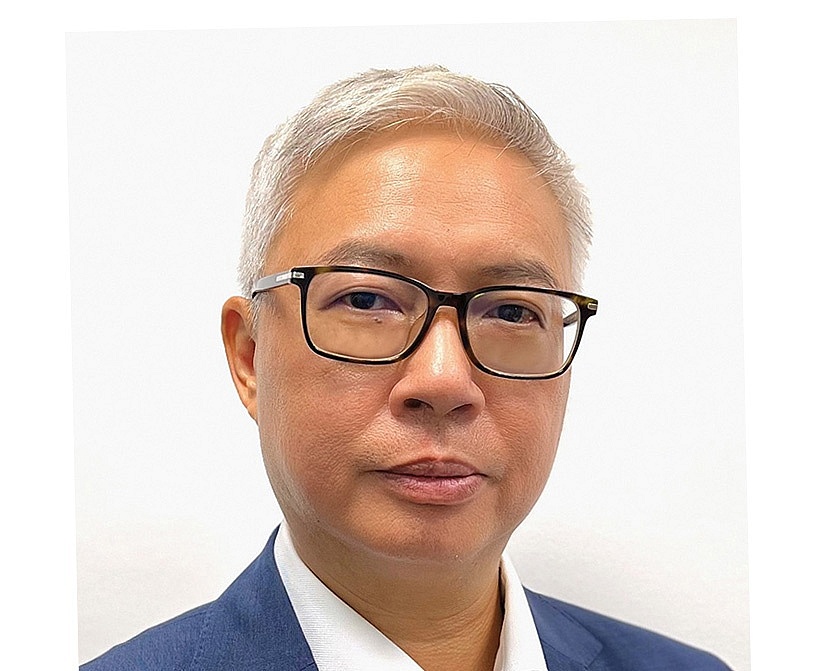Compelling signs ahead in healthcare
Could you shed light on the development and opportunities in Vietnam’s healthcare and pharma?
Across Asia-Pacific, healthcare and life sciences breakthroughs offer exciting opportunities to meet patient needs and create value, according to Baker McKenzie’s new digital report titled “Unlocking and Accelerating Growth: Healthcare and Life Sciences in Asia-Pacific”.
 |
| Seck Yee Chung, partner and head of Mergers & Acquisitions and Healthcare and Life Sciences practices in Vietnam for Baker McKenzie |
Vietnam is now a dynamic country in the region with a unique imperative to healthcare transformation. A healthcare system with a low density of skilled healthcare professionals, robust market conditions, and headroom for growth combine to create an attractive destination for innovation and investment in healthcare and life-science sectors. Vietnam’s government has been actively promoting foreign direct investment (FDI) in the healthcare sector with various incentives. It is also improving the regulatory framework to ensure high quality domestic production, robust intellectual property protection and licensing, all of which will also support growth.
It’s encouraging that foreign investors continue to invest in Vietnam’s manufacturing sector. These investments reflect the broader trend of shifts in supply chain and manufacturing operations away from China and into Southeast Asian countries. This is driven in part by geopolitical dynamics and global trade reform among major markets. Vietnam is well-positioned in terms of geography and stability as it deepens its role in global supply chains and remains cost competitive whilst also focusing on upskilling the workforce.
The government has been actively promoting FDI in the healthcare sector. How do you see the trend of this so far?
Vietnam’s unique population demographics, digitally savvy citizens, and an overburdened healthcare system combine to create exciting and urgent opportunities for investment and development in the healthcare sector. Pharmaceutical and medical device manufacturing have been attractive to foreign investments, given the government set an ambitious target of Vietnam becoming a high-value pharmaceutical manufacturing hub, earning $1 billion annually from pharmaceutical exports by 2030.
Transformation-focused investments, for example in biotech, healthtech, and research and development, should also draw great significant interest from investors.
Healthcare dealmaking remains a bright spot in Vietnam. What is the landscape of mergers and acquisitions (M&As) in Vietnam in this area?
In recent times, transactions involving private hospitals and clinics have driven deal volume in Vietnam. General hospitals and specialised chain of clinics in big cities like Hanoi and Ho Chi Minh City have been attractive to funds and foreign investors.
Notable deals include the acquisition of FV Hospital by Thomson Medical Group; a comprehensive strategic partnership agreement between American International Hospital and Raffles Medical Group; and KKR & Co.’s acquisition of shares from Heliconia Capital as the largest shareholder of Vietnam’s biggest eye hospital chain Medical Saigon Group.
Vietnam’s pharmaceutical manufacturing also receives strong interest from foreign investors amidst current global macroeconomic turbulence. Favourable market access conditions for pharma manufacturing has driven strategic partnerships between local manufacturers and foreign investors, including Mekophar and Nipro Pharma (Japan), Imexpharm and SK Group (South Korea), Traphaco and Daewoong (South Korea), and many more.
For the next couple of years, we see from a broader view that there will be still compelling opportunities for M&A healthcare in Vietnam given global companies and investors are building resilience through transactions, partnerships and inward investment in the Asia-Pacific region. Private equity investors will also play an increasingly important part in this landscape, as the trend for restructuring and divestment continues.
Our aforementioned report finds that biotech, healthtech, and digital therapeutics players in Asia-Pacific are leading the development of next-generation healthcare and life sciences solutions. Facing sluggish capital markets, M&As are a strategic lever to finance growth and optimising balance sheets in anticipation of takeover bids is key to attracting strategic buyers.
What are the potential healthcare assets buyers are looking to snap up in Vietnam, and what else did your report touch on?
Private equity investors will be potential buyers of healthcare assets given the size and scope of carved-out assets are often particularly attractive to private equity buyers and sponsors, with opportunities to transform assets to realise future value.
Our report highlights how AI has become a key part of the revolution in healthcare and life sciences, and that governments across the Asia-Pacific region have identified the power of AI to help address national healthcare challenges and turbocharge innovation, investment, and economic growth.
Vietnam has been home to a growing number of promising startups and established leaders in the AI space. This dynamic market is seeing robust deal activity, including venture capital finance, collaborations, and licensing agreements between digital players and established pharmaceutical companies and public-private partnerships. This will only increase as AI matures, existing applications scale and new use cases are discovered.
 | Healthcare service quality must meet global standards Vietnam is actively improving the quality of medical services at hospitals towards meeting international standards, aiming to engage foreigners for medical examination and treatment here. |
 | Private healthcare boosts its presence Together with expansion plans among foreign-invested enterprises, emerging private players are boosting their presence in the promising local healthcare market. |
 | Partnership key to improving healthcare in Vietnam Stakeholders are joining Vietnam’s efforts in improving healthcare accessibility, and sustainably developing the sector. Nguyen Thi An, country director of HealthBridge, spoke with VIR’s Tung Anh about how businesses can make a contribution. |
 | Public investment factor cannot be underestimated With its experience in dealing with world-scale epidemics such as SARS and H5N1, or the COVID-19 pandemic, Vietnam’s healthcare system has proven its ability to provide prompt respond in the face of epidemics, thereby showing great strides in the healthcare quality of Vietnam and reaffirming the immense importance of this sector in the new era of technology. |
What the stars mean:
★ Poor ★ ★ Promising ★★★ Good ★★★★ Very good ★★★★★ Exceptional
Themes: Healthcare Platform
- PM outlines new tasks for healthcare sector
- Opella and Long Chau join forces to enhance digestive and bone health
- Hanoi intensifies airport monitoring amid Nipah disease risks
- Cosmetics rules set for overhaul under draft decree
- Policy obstacles being addressed in drug licensing and renewal
Related Contents
Latest News
More News
- PM outlines new tasks for healthcare sector (February 25, 2026 | 16:00)
- Myriad risks ahead, but ones Vietnam can confront (February 20, 2026 | 15:02)
- Vietnam making the leap into AI and semiconductors (February 20, 2026 | 09:37)
- Funding must be activated for semiconductor success (February 20, 2026 | 09:20)
- Resilience as new benchmark for smarter infrastructure (February 19, 2026 | 20:35)
- A golden time to shine within ASEAN (February 19, 2026 | 20:22)
- Vietnam’s pivotal year for advancing sustainability (February 19, 2026 | 08:44)
- Strengthening the core role of industry and trade (February 19, 2026 | 08:35)
- Future orientations for healthcare improvements (February 19, 2026 | 08:29)
- Infrastructure orientations suitable for a new chapter (February 19, 2026 | 08:15)

 Tag:
Tag:




















 Mobile Version
Mobile Version